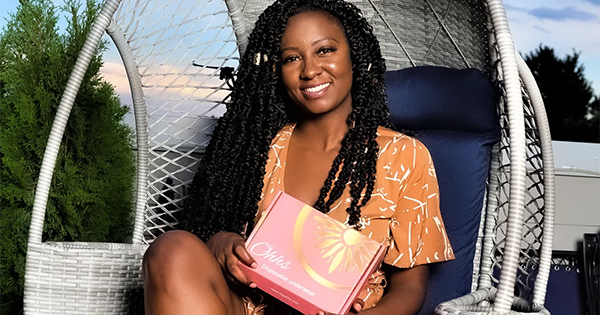Patricia Kayanga, an entrepreneur from Washington, DC, is the founder and CEO of Ohhs, a line of newly patented disposable underwear designed for women while on vacations while camping, while at the spa, and during menstruation. For every box sold, she donates a pair of eco-friendly underwear to local domestic violence shelters.
Born in Uganda, Patricia moved with her family to the US where they were blessed with a more comfortable life. After noticing some items get easily damaged despite being expensive, her mother encouraged her to create something disposable. As a person who had always dreamed of creating something unique, she thought of making disposable underwear.
As simple as the idea is, there was nothing like it in the market yet even when she checked the patent website. After completing her prototype, she immediately began the process of patenting. With the help of a lawyer specializing in patents, she won the patent for disposable underwear design, making her the first Black woman to do so in the US.
However, the product’s uniqueness turned out to be challenging when it comes to finding a manufacturer. She encountered a lot of rejections before she found someone who can make the underwear according to her original specifications.
Ohhs Disposable Underwear is made of sustainable fabric and bamboo, which is known for its eco-friendly and hygienic benefits. It is seamless and has a dry tissue-like material that is perfect for travel, camping, spa, gym, periods, and emergencies.
Moreover, Kayanga also saw the need for more access to feminine products for women in domestic shelters who are running away from a challenging situation. She stepped up to donate a pair of Ohhs underwear to a local women’s shelter for every box they sell.
“Many women need quality underwear, but it’s only sometimes available,” Patricia told Rolling Out. “Underwear is the second most requested item in homeless shelters. We have a product that can serve that need and is more convenient. Our goal, honestly, is to scale across the nation. You should have access to it, no matter the circumstances.”
Article Credits: Black Enterprise
